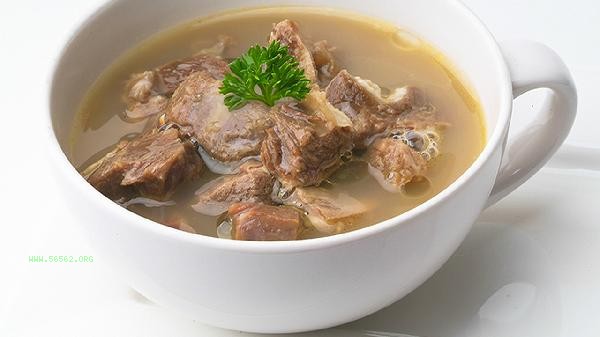Long term abstinence from meat during adolescence may lead to insufficient intake of nutrients such as protein, iron, and zinc, which can affect growth, development, and immune function. Meat is an important source of high-quality protein, heme iron, and vitamin B12. Long term deficiency may lead to problems such as anemia, decreased muscle mass, and weakened immunity.

1. Protein deficiency
Meat provides all the essential amino acids needed by the human body and is an important raw material for synthesizing muscles and tissues. If adolescent children lack meat for a long time, they may experience growth retardation, decreased physical strength, and slow wound healing. Although plant proteins such as legumes can be partially replaced, their absorption and utilization rates are relatively low, and they need to be combined with grains to improve protein complementarity.
2. Iron deficiency
The absorption rate of heme iron in meat is much higher than that of plant-based iron. Iron deficiency may lead to anemia symptoms such as lack of concentration, fatigue, and pale complexion. Adolescent girls need to pay more attention to iron supplementation due to menstrual bleeding, and alternative foods such as animal liver and blood products can be added appropriately.
3. Reduced Zinc Intake
Zinc is crucial for sexual development and immune function, and red meat and seafood are high-quality sources of zinc. Zinc deficiency may affect the development of secondary sexual characteristics, increase the risk of acne and hair loss, and reduce taste sensitivity. Nut seed foods contain zinc, but there is a problem of phytic acid interference in absorption.

4. Vitamin B12 deficiency
Vitamin B12 is almost exclusively found in animal based foods, and long-term vegetarianism may cause neurological damage and megaloblastic anemia. Adolescent children need to be supplemented with eggs, milk, or fortified foods, and if necessary, nutritional supplements should be used under the guidance of a doctor.
5. Insufficient energy supply
Meat provides high-density energy, which helps meet the needs of rapid growth during adolescence. Completely relying on a plant-based diet may require an increase in staple food intake, but it may also increase the burden on the gastrointestinal tract. It is important to pay attention to pairing with high-fat foods such as vegetable oils and nuts.

For adolescent children who choose vegetarianism due to dietary preferences or environmental awareness, it is recommended to make up for the nutritional gap through diversified diets. Adequate intake of dairy products, eggs, and soy products should be ensured daily, paired with dark vegetables, whole grains, and nut seeds. Regularly monitor indicators such as height, weight, and blood routine. If symptoms such as fatigue, dizziness, and developmental delay occur, seek medical attention promptly. When cooking, iron pots and fruits rich in vitamin C can be used to promote the absorption of non heme iron. If necessary, complex nutrient preparations can be supplemented under the guidance of a nutritionist.








Comments (0)
Leave a Comment
No comments yet
Be the first to share your thoughts!